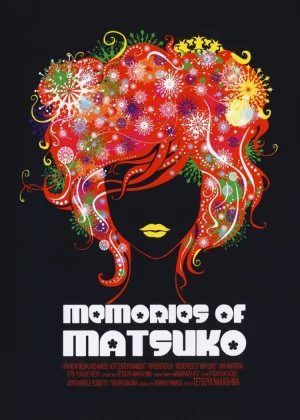Memories of Matsuko
The first time I watched Tetsuya Nakashima's Memories of Matsuko [Kiraware Matsuko no Issho], it confused the hell out of me. I felt it was the kind of film I would normally love to bits, but somehow that didn't quite register while watching. There were just too many things that made me lose grip on the film as a whole. Even though memories of the film had faded, I was looking forward to seeing it again, as I suspected it might be faring better the second time around. And boy was I right.
![screen capture of Memories of Matsuko [Kiraware Matsuko no Issho]](/thumbs/img/articles/1200xauto/memories-matsuko-1.webp)
I used to think of Nakashima's oeuvre as a body of work divided in two. There were the films prior to Confessions and the ones that came after. Confessions was a surprisingly dark, grim and relentless film, whereas his earlier features were much breezier and colorful. At least, that's how I remembered it. After watching Memories of Matsuko for a second time, I'm not so sure anymore. I guess Memories of Matsuko would've been the perfect transition between these two different stages, but there's still Paco and the Magical Picture Book to consider, so even that theory doesn't really work.
Whatever the case, Memories of Matsuko is a living contradiction. Story, themes and styling have rarely been this far apart, which no doubt explains why I was so confused the first time around. The flashy, colorful style found in Kamikaze Girls returns in an even brighter and more outlandish variation, yet the story it tells is tragic and gravely depressing. And it's not just some director's folly to try to mislead his audience, it's a constant from start to finish which Nakashima fully commits to.
The film tells the story of Matsuko's life and how she came to die. One day, she is found dead next to a river, her body is cremated, and then returned to her estranged brother. He informs his son about the fate of his aunt, which triggers the kid to go on a quest to uncover the truth. Intrigued by the mystery of his aunt's life, the boy hopes to find the culprit who murdered Matsuko. It brings him places he never expected to go, and as he is sucked deeper into Matsuko's story, the tragedy of her life is slowly revealed.
![screen capture of Memories of Matsuko [Kiraware Matsuko no Issho]](/thumbs/img/articles/1200xauto/memories-matsuko-2.webp)
Visually this is an absolute trip. Memories of Matsuko is true paradise for people who love bright colors, vivid contrasts and hefty overexposure. Add to that the rich and detailed sets, agile camera work and Nakashima's meticulous eye for strong compositions and you have a film with an extremely potent stylistic signature. It's all very much in your face of course, so if you prefer a more subdued and laid-back style, this just isn't going to be your thing. I loved it though, seeing it back just reminded of how this visually explicit style of filming is a lot harder to find these days.
One thing I've failed to mention so far is that Memories of Matsuko partly plays like a musical, as if things weren't strange enough. There are a couple of musical numbers, all of which are pretty elaborate, that help to illustrate the life of Matsuko. The songs border on the poppy/jazzy side, so some affinity (or at least familiarity) with J-pop is definitely recommended. While I wouldn't bother with the music outside the context of the film, it's a strong fit and it certainly helps to strengthen its identity even further.
The acting is quite over-the-top, but that comes with the territory. Even though there's plenty of drama to go around, the actors are stuck in a brightly colored musical, which doesn't really allow for subtle and introspective performances. Even so, Miki Nakatani still manages to draw sympathy from the audience, with solid secondary performances of Yusuke Iseya, Mikako Ichikawa and Yoshiyoshi Arakawa backing her up. It's an all round impressive cast, but it might take a while before you get a feel for the tricky balance they're trying to achieve here.
![screen capture of Memories of Matsuko [Kiraware Matsuko no Issho]](/thumbs/img/articles/1200xauto/memories-matsuko-3.webp)
As frivolous and jolly as the film's exterior may be, by the time the ending wraps up the tragedy is sure to have left its marks. At least, if you buy into Nakashima's effort. Even though taste is always a factor when evaluating films, the balance that Nakashima tries to strike here is quite peculiar and requires a rather specific mindset. Memories of Matsuko is not so much a complex or difficult film, but it brings together several elements that are rarely found together and are sure catch people off-guard. It worked for me, though I clearly needed a second view to appreciate the film to its fullest.
Regardless of what you think of the result, Memories of Matsuko is a film worth seeking out. Nakashima's style is unique, different and overwhelming, and the best thing about it is that he doesn't hold back at all. As weird and off-center as Memories of Matsuko may be, there's a purity to the execution that's quite rare indeed. The blend of an explicit and vibrant stylistic signature and upbeat musical numbers with a deeply tragic narrative is impossible to explain, it just has to be experienced first-hand. Memories of Matsuko is vintage Nakashima, which means it won't be for everyone, but it's sure to leave an impression.
